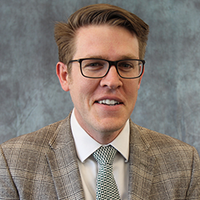Mark Verbitsky: Assessment of Student Learning (COVID-19)
Assessment of Student Learning in Remote Teaching and Learning Contexts
Focus on More Formative Assessments
 By Mark Verbitsky, Assistant Professor of Teaching Political Science
By Mark Verbitsky, Assistant Professor of Teaching Political Science
Q. How have you reconsidered your course-level assessment plans in light of the remote teaching and learning context?
A. In addition to other changes I have made as the campus has shifted to remote teaching and learning, I have reconsidered how I will assess student learning in my courses this quarter. I will be focusing even more on formative assessment strategies.
Adding more lower-stakes assessments
First, I have added short quizzes on content covered in the course videos to give students a stronger incentive to watch the videos. The questions are relatively basic because, along with worrying about overburdening the students, I am aware that this shift in teaching is putting a burden on TAs. Overall, I wanted to ensure that all the changes I made would make assessment of student learning in the course more accessible and manageable for everyone involved.
Incorporating reflection activities
Second, and much more interesting, I have incorporated more reflection activities into my courses.
One of my biggest worries regarding remote learning is that students are going to be physically isolated and, along with that, they’re going to feel disconnected from the university.
To address this danger, I’ve created assignments to get students talking and working together so that they remember that they are still a community of students. For this quarter, I have sorted the students into groups of four. On a biweekly basis, I ask them to write some reflections on what they learned, addressing: what was their favorite topic/reading, what was the most important lesson (explain it and why it stood out), and what disagreement is there in the group. Finally, each group needs to identify a question they would like addressed, post the question on the course discussion board, and respond to another group’s question. If I can build communities in the classroom, I’m hoping the students will be more attached to the course, and through regular reflections, I’m hoping that they will have a better appreciation of how much they’re learning. Most importantly, by seeing their reflections on a regular basis, I will get valuable information on their perception of the material, as well as the extent to which they are moving towards the learning goals for the course.
- Mark is curious about teaching and learning
- Since arriving on campus, Mark has been one of the most regular participants in faculty learning opportunities developed and facilitated by the Learning and Teaching Support Team in the UC Davis Center for Educational Effectiveness. He has participated in faculty learning communities, including 2017 Engaged Learning and Teaching Community and the 2018 Scholarship of Teaching and Learning Community. He currently serves on the Academic Assessment Faculty Advisory Committee.